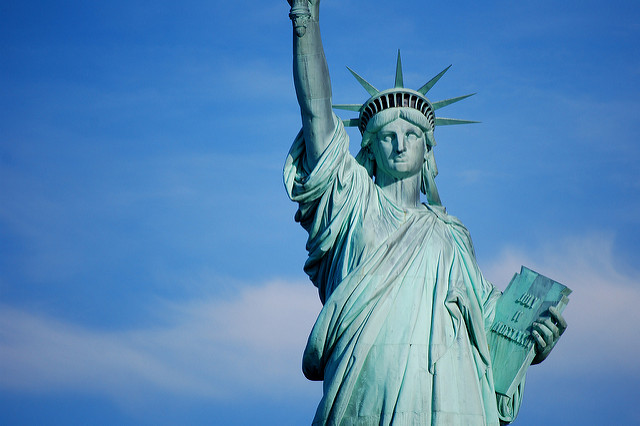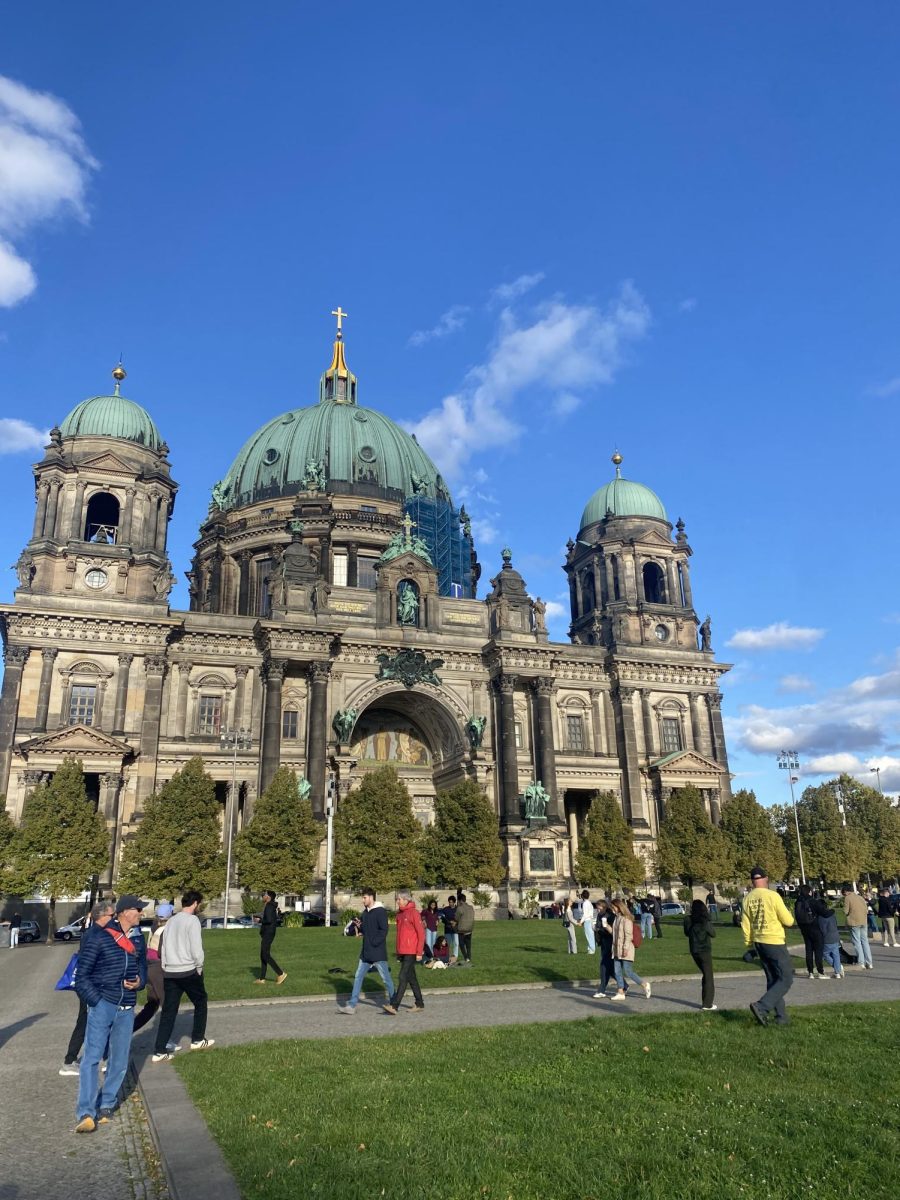By Jose Castillo, political columnist
In 1883, American poet Emma Lazarus presented her sonnet “The New Colossus” at a fundraiser benefiting the construction of a base and pedestal for the Statue of Liberty. She drew inspiration from her time working in a refugee detainment center as well as from her own Jewish heritage. In her work, Lazarus not only gives purpose to the Statue but also celebrates the United States for being a “land of immigrants.” She writes: “With silent lips, ‘Give me your tired, your poor, Your huddled masses yearning to breathe free, The wretched refuse of your teeming shore. Send these, the homeless, tempest-tost to me, I lift my lamp beside the golden door!’”
Lazarus’s reminder to reflect on whether our actions and values promote a more inclusive community, especially for those who are most in need, has unfortunately been invoked to protest last Friday’s executive order. President Donald J. Trump banned the entry of travelers from seven countries for 90 days, refugee admissions for 120 days and Syrian refugees indefinitely. Democratic National Committee chair nominee and Rep. Keith Ellison (D-MI), former Independent presidential nominee Evan McMullin and former Secretary of State Madeline Albright, all took to Twitter to post Lazarus’s poem in solidarity with protesters who took to streets and airports across America.
To those who support the executive order, a momentary “pause” on migration coming from countries associated with terrorist activities is the small price to pay in order to protect the well-being of Americans. This is the primary reason Trump gave for the travel ban. On the other hand, those who oppose Trump’s executive order have been quick to point out that the seven countries listed in the ban—Iran, Iraq, Libya, Somalia, Sudan, Syria and Yemen—are being targeted incorrectly, while nations like Saudi Arabia, Egypt and the United Arab Emirates have suspiciously been excepted from the ban.
In an article fact-checking Rep. Jerrold Nadler’s (D-N.Y.) claim that those who have committed terrorist acts in the U.S. post-9/11 have not come from any of the countries listed in the ban, Politifact wrote: “Experts on terrorism tell us that since 9/11 no one in the United States has been killed in a terrorist attack by someone from the seven countries for which Trump’s executive order temporarily suspends admission […] But there have been at least three non-deadly cases in which the perpetrator was connected to Iran or Somalia.”
Another critique, especially by those actively protesting throughout major U.S. cities and airports, is that the ban is a proto-“Muslim ban.” While the executive order does not call for a ban of those practicing the Islamic faith, each of the seven countries listed in the ban has a majority-Muslim population, and a clause contained in the order gives preference to those who practice a “minority religion.” In 2015, following a terrorist attack in San Bernardino, Trump proposed a ban on all foreign Muslims trying to enter the country, and on Saturday, former New York City Mayor Rudy Giuliani told Fox News that the President had called him asking how to legally put together a Muslim ban.
While some may call the president’s move unparalleled, this ban follows a long line of discriminatory restrictions based on place of origin. A report commissioned by the President on Immigration and Naturalization in 1953 states that “American immigration policies have frustrated and handicapped the aims and programs of American foreign policy throughout the period since 1924. The interference is acute today.” It also lists the national origins system as a major disruptive influence to immigration law.
The Alien and Sedition Acts, the Chinese Exclusion Act and biased immigration quotas from the 1920s targeting those from specific countries derive from the Imperialistic notions of Orientalism, Manifest Destiny and “othering,” writes Sahar F. Aziz of Fox News.
Lazarus’s famous poem starts: “Not like the brazen giant of Greek fame, with conquering limbs astride from land to land,” setting up a contrast between our Statue of Liberty and the original Colossus of Rhodes. She continues, “her name Mother of Exiles. From her beacon-hand Glows world-wide welcome; her mild eyes command the air-bridged harbor that twin cities fame. ‘Keep ancient lands, your storied pomp!’ cries she.”
These words match the ideals embedded by the Founding Fathers, who rejected the archaic governments they had left, and reflect the beliefs of those who find themselves on our shores. Ironically, in trying to protect the well-being of Americans and our ideals, this executive order dismisses values and creed that has brought out the best in our country.
Photo courtesy Celso FLORES, Creative Commons









